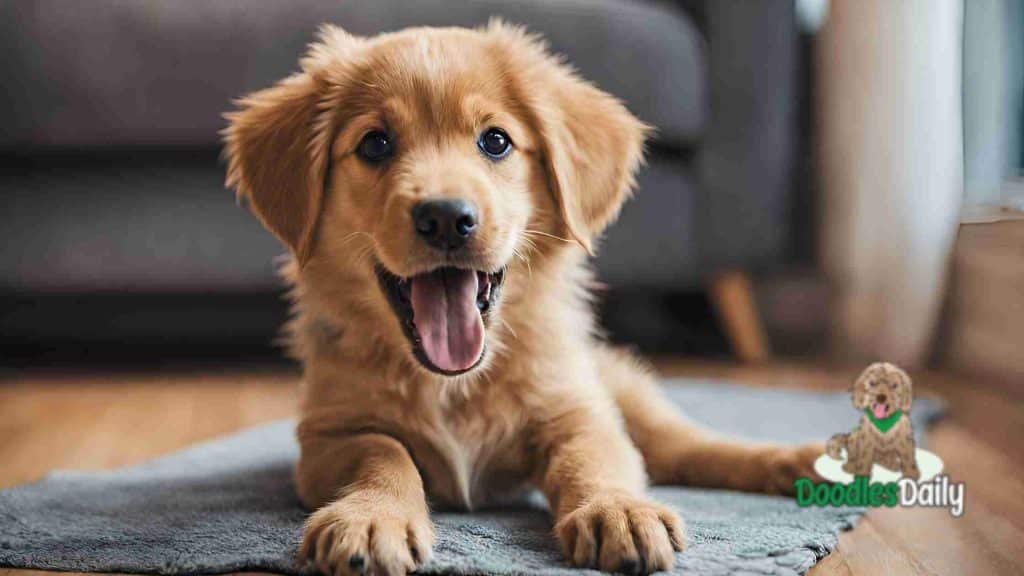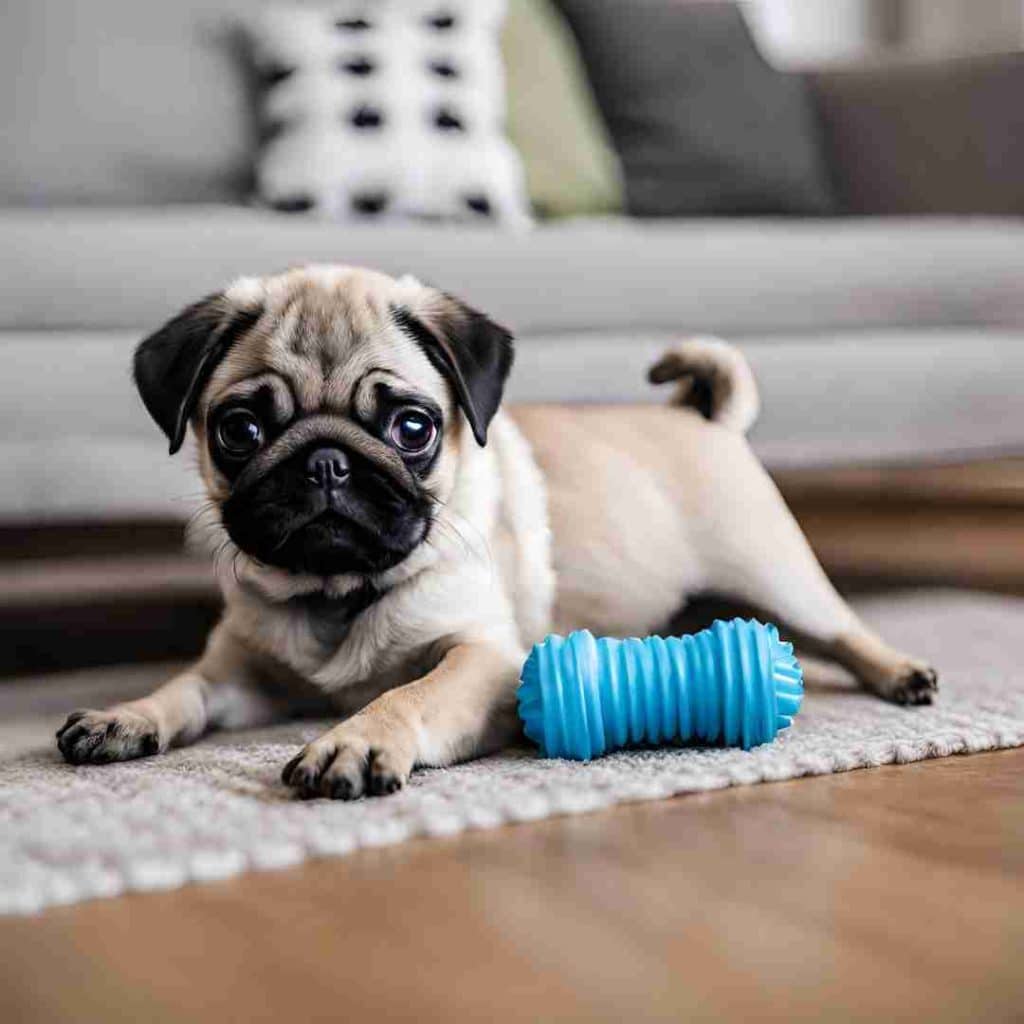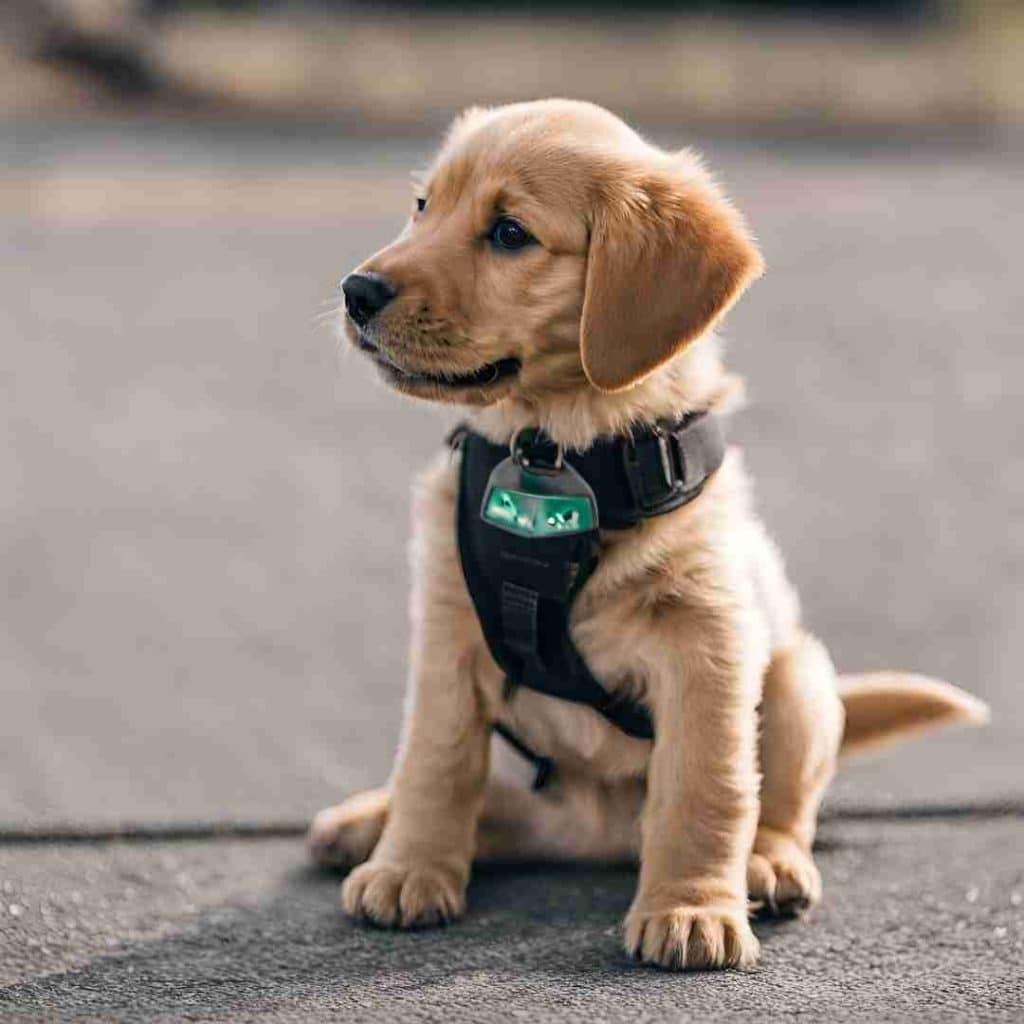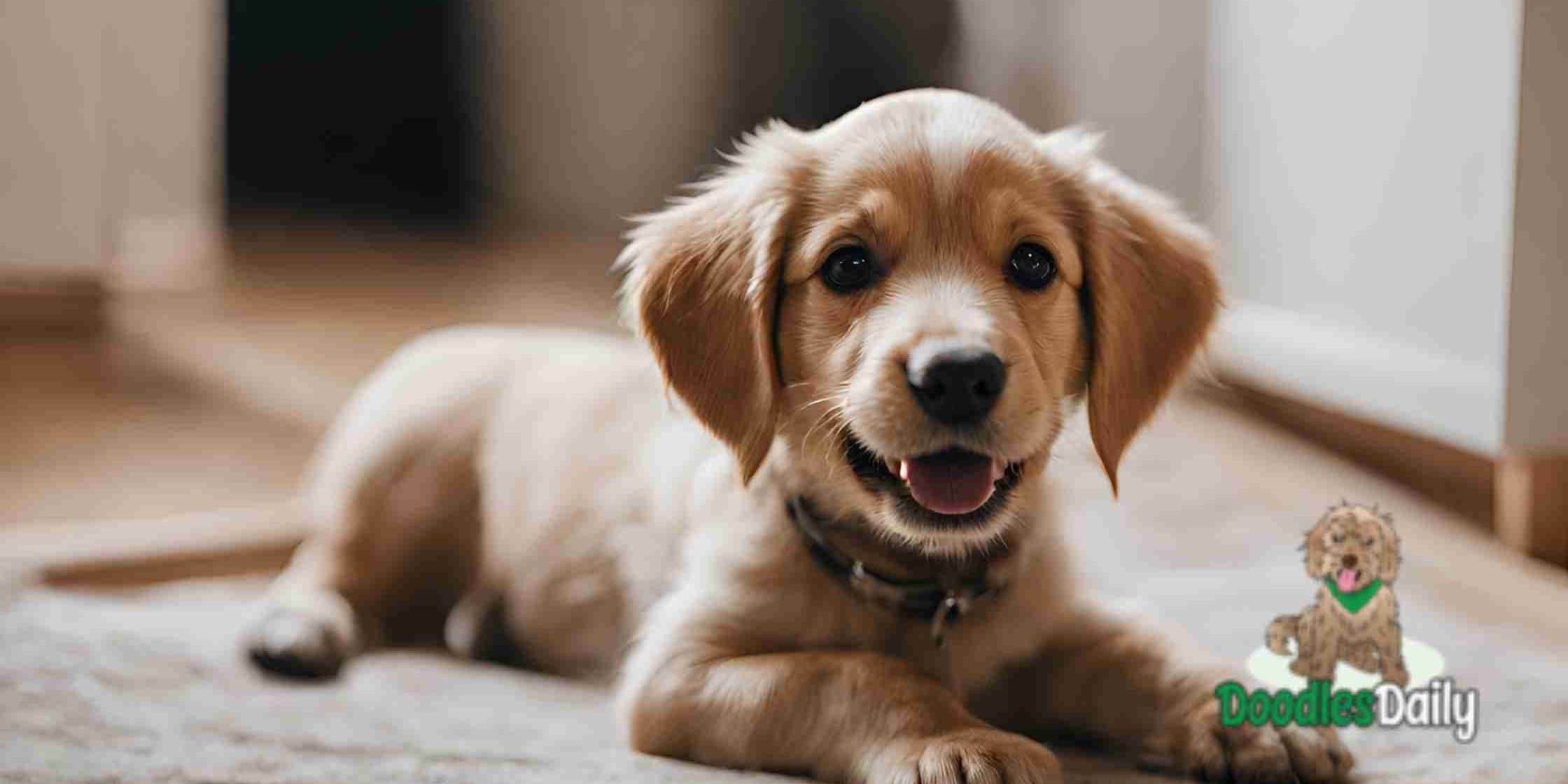Welcome to the world of puppy ownership! Bringing a new furry friend into your apartment can be a wonderful experience, but it’s important to be prepared for the responsibility that comes with it.
Living in an apartment has unique challenges and opportunities when it comes to raising a puppy. With the right preparation and mindset, you can provide a loving home for your new companion.
Editor’s Note: Accidents are going to happen. Our editor, Chad, recently brought a new puppy into his family apartment. When the inevitable did happen, he was so thankful for this deep cleaner. Any messes are quickly cleaned up, leaving your carpet & furniture as good as new. Do yourself a favor, make sure you’re prepared to deal with puppy mess.
Key Takeaways
- Choosing the right puppy is crucial for apartment living.
- Preparing your apartment and stocking up on supplies is important before bringing your new friend home.
- Training and socialization are key to raising a happy, well-behaved puppy in an apartment.
What Dogs Are Good For Apartments?
In short, a lot of dogs. Even larger breeds are fine if you are willing to meet their activity needs.
Choosing the right puppy is the first step in your journey. Consider factors such as breed, size, and personality when making your decision. Once you’ve found the perfect match, it’s time to prepare your apartment for your new arrival. Puppy-proofing your space, setting up a designated area for your puppy, and stocking up on supplies are all important steps to take before bringing your new friend home.
Training and socialization are crucial for any puppy, but especially for apartment dwellers. You’ll need to teach your puppy good manners and how to behave in a small space. Socializing your puppy with other dogs and people is also important to prevent behavioral issues down the road. With patience and consistency, you can raise a happy, well-behaved puppy in your apartment.
Choosing the Right Puppy
As an apartment owner, it’s important to choose the right puppy to ensure a harmonious living environment for both you and your furry friend. In this section, we’ll discuss three important factors to consider when choosing a puppy: assessing puppy temperament, suitable breeds for apartment living, and understanding puppy growth stages.
Assessing Puppy Temperament
When choosing a puppy, it’s important to assess their temperament to ensure they are a good fit for apartment living. Look for puppies that are calm, friendly, and not prone to excessive barking or anxiety. Spend time with the puppy before bringing them home to get a sense of their personality and energy level.
Best small apartment dog breeds for first-time owners
Size does matter when it comes to choosing a puppy for apartment living. Small and medium-sized breeds are ideal for apartment owners as they require less space to move around. Some of the best breeds for apartment living include Bichon Frise, Boston Terrier, Cavalier King Charles Spaniel, Chihuahua, French Bulldog, and Pug.
Energy levels and temperament are also important factors to consider when choosing a breed. Look for breeds with a calm and apartment-friendly temperament, such as the Bulldog, Greyhound, or Shih Tzu. These breeds are known for being low-energy and require minimal exercise, making them a great fit for apartment living.

Understanding Puppy Growth Stages
Puppies go through different growth stages, and it’s important to understand these stages to ensure you’re providing them with the proper care and attention. The first few months of a puppy’s life are crucial, as this is when they develop their personality and habits. As an apartment owner, you’ll need to be patient and consistent with your training to ensure your puppy grows up to be a well-behaved and happy companion.
The importance of research cannot be overstated when it comes to choosing the right puppy for apartment living. Take the time to research different breeds and their temperament, energy levels, and exercise needs. Avoid breeds that are known for excessive barking or anxiety, as they may not be a good fit for apartment living.
Remember, choosing the right puppy is a big decision, and it’s important to take your time and make an informed choice. By considering the factors discussed in this section, you’ll be well on your way to finding the perfect furry companion for your apartment.
Puppy Proofing Apartment
Don’t forget about puppy-proofing your apartment! Bringing a new puppy home can be an exciting and rewarding experience. However, it is important to prepare your apartment in advance to ensure your puppy is safe and comfortable. Here are some tips to help you prepare your apartment for your new puppy.
Puppy-Proofing Essentials
Before bringing your new puppy home, it is important to identify potential hazards in your apartment. This includes securing electrical cords, toxic plants, and other dangers. Make sure to keep all cords out of reach or covered with cord protectors. You should also remove any toxic plants or keep them out of reach of your puppy.
In addition, when puppy-proofing an apartment, make sure to secure any cabinets or drawers that contain cleaning supplies or other dangerous items. It is also important to keep all trash and recycling bins out of reach of your puppy.
A dog-safe trash can is essential for keeping your puppy out of the trash, and the nasty bacteria inside.
Setting Up a Comfortable Space
Setting up a safe and comfortable space for your puppy is important. Consider designating a specific area of your apartment for your puppy, such as a crate or playpen. This will provide your puppy with a safe and secure space to rest and play.
When setting up your puppy’s space, make sure to include comfortable bedding, food and water bowls, and plenty of toys. You should also consider purchasing a puppy gate to block off any areas of your apartment that are not safe for your puppy.
Buying Apartment-friendly Toys and Games for Puppies

When you’ve got a puppy in an apartment, it’s good to have toys and games that work well in smaller spaces. Choose toys that are not too big and won’t make a mess. Look for interactive games that keep your pup entertained without causing trouble. Puzzle feeders are cool —they make your pup think and give them a treat for figuring it out. Also, pick chew toys that are good for their teeth.
Soft plush toys are nice for cuddling, and rope toys are good for a game of tug-of-war. Make fetch fun with softballs, and you can even create a simple snuffle mat for your pup to explore and find treats. These kinds of toys and games make living with a puppy in an apartment a lot easier and more enjoyable for both of you!
Training and Socialization
Owning a puppy in an apartment can be challenging, but with the right training and socialization, you can raise a happy, healthy, and well-behaved dog. Here are some tips to help you get started.

Effective puppy house training methods for apartments
House training is one of the most important aspects of owning a puppy. It’s essential to establish a routine and stick to it. Take your puppy outside frequently, especially after meals, naps, and playtime. Praise your puppy when they go potty outside, and be patient when accidents happen inside. Use positive reinforcement techniques, such as treats and praise, to encourage good behavior.
Consider using puppy pads or a litter box for times when you can’t take your puppy outside. Be consistent with your training, and don’t give up. With patience and persistence, your puppy will learn to go potty outside.
Obedience Training Tips
Obedience training is essential for a well-behaved puppy. Start with basic commands, such as “sit,” “stay,” and “come.” Use positive reinforcement techniques, such as treats and praise, to encourage good behavior. Be consistent with your training, and don’t give up. With patience and persistence, your puppy will learn to follow your commands.
Consider enrolling your puppy in a puppy training class. These classes provide a great opportunity for socialization and can help you learn how to train your puppy effectively.
Socializing Your Puppy with Neighbors
Socializing your puppy is important for a well-adjusted and friendly dog. Introduce your puppy to your neighbors and their pets. Start with short visits and gradually increase the duration as your puppy becomes more comfortable. Use positive reinforcement techniques, such as treats and praise, to encourage good behavior.
Consider using noise management strategies to minimize barking and noise complaints. White noise machines and behavioral training can help reduce excessive barking.
Addressing neighbor concerns is also important. Tips for handling complaints and concerns diplomatically include building positive relationships with neighbors and being proactive in addressing any issues that arise.
By following these tips, you can help your puppy adjust to apartment living and become a well-behaved and socialized dog.
Health and Wellness
As a responsible apartment owner, you want to ensure your puppy stays healthy and happy. Here are some tips to help you keep your furry friend in good shape.
Choosing a veterinarian for your apartment puppy
Regular visits to the veterinarian are essential to your puppy’s health. You should take your puppy to the vet for a check-up at least once a year. During the check-up, the vet will examine your puppy and check for any health issues. The vet may also recommend vaccinations, deworming, and other preventive care measures. Make sure to follow the vet’s advice and schedule any recommended appointments.
Nutrition and Exercise
Proper nutrition and exercise are critical to your puppy’s health and wellness. You should feed your puppy a well-balanced diet that meets their nutritional needs. Make sure to provide fresh water at all times. You can consult with your vet on the best diet for your puppy.
Exercise is also key to your puppy’s health. Regular walks and playtime help your puppy stay active and healthy. You should aim to provide your puppy with at least 30 minutes of exercise each day, depending on their breed and age.
Emergency pet care tips for apartment dwellers
Emergencies can happen at any time, and it’s essential to be prepared. You should have a plan in place in case of an emergency. Keep a first aid kit on hand and make sure you know how to use it. You should also have the contact information for your vet and an emergency animal hospital on hand.
In case of an emergency, stay calm and assess the situation. If your puppy is in distress, take them to the vet immediately. If you can’t get to the vet, call the emergency animal hospital and follow their instructions.
By following these tips, you can help ensure your puppy stays healthy and happy. Remember to provide regular veterinary care, proper nutrition and exercise, and be prepared for emergencies.
Apartment Owners Guide to Owning a Puppy Recap
Welcoming a puppy into your apartment comes with unique challenges and joys. Choosing the right puppy is crucial, considering factors like temperament and size. Preparing your apartment is key, including puppy-proofing, creating a designated space, and having essential supplies. Training and socialization are vital for a well-behaved pup in a confined space. Health and wellness involve regular vet visits, proper nutrition, exercise, and emergency preparedness. With careful consideration and effort, you can foster a happy and harmonious relationship with your new furry companion in your apartment.
Frequently Asked Questions
What are the best strategies for potty training a puppy in an apartment setting?
Potty training a puppy in an apartment can be challenging, but it is possible. One of the best strategies is to establish a consistent routine. Take your puppy out at regular intervals throughout the day, such as after meals, naps, and playtime. Praise your puppy when they go potty outside and avoid punishing accidents indoors. Use a crate or confinement area when you are not able to supervise your puppy to prevent accidents.
How can I puppy-proof my apartment to ensure safety and comfort for my new pet?
Puppy-proofing your apartment is essential to ensure your puppy’s safety and comfort. Start by removing any hazardous items such as cleaning supplies, electrical cords, and sharp objects. Keep plants out of reach as some can be toxic to dogs. Use baby gates to block off areas that are off-limits to your puppy. Provide plenty of toys and chews to keep your puppy entertained and prevent destructive behavior.
What is an ideal daily schedule for a dog living in an apartment?
An ideal daily schedule for a dog living in an apartment should include regular exercise, potty breaks, and playtime. Take your dog for a walk or play fetch in a nearby park to provide mental and physical stimulation. Provide puzzle toys and interactive games to keep your dog entertained when you are not home. Stick to a consistent schedule to help your dog adjust to apartment living.
How can I effectively manage noise and keep my puppy calm in an upstairs apartment?
Living in an upstairs apartment can be noisy, but there are ways to manage the noise and keep your puppy calm. Use white noise machines or calming music to drown out outside noise. Provide a comfortable, quiet space for your puppy to retreat to when they are feeling anxious. Use positive reinforcement training to teach your puppy to stay calm during loud noises.
What tips can you offer for raising a young puppy in a smaller living space?
Raising a young puppy in a smaller living space requires patience and creativity. Use a crate or confinement area to provide a safe space for your puppy when you are not able to supervise them. Provide plenty of mental and physical stimulation through interactive toys and games. Use positive reinforcement training to teach your puppy good behavior and establish a consistent routine.
How can I create a dedicated space for my puppy on my apartment balcony?
Creating a dedicated space for your puppy on your apartment balcony requires careful planning and consideration. Ensure that the balcony is safe and secure by using sturdy railings and checking for any gaps or holes. Provide shade and a comfortable place to rest by using a dog bed or crate. Use potty pads or a designated potty area to prevent accidents and keep the balcony clean.

Ben, our resident wordsmith, finds inspiration in the playful world of pups, bringing to life enchanting tales that resonate with every dog lover’s heart.






